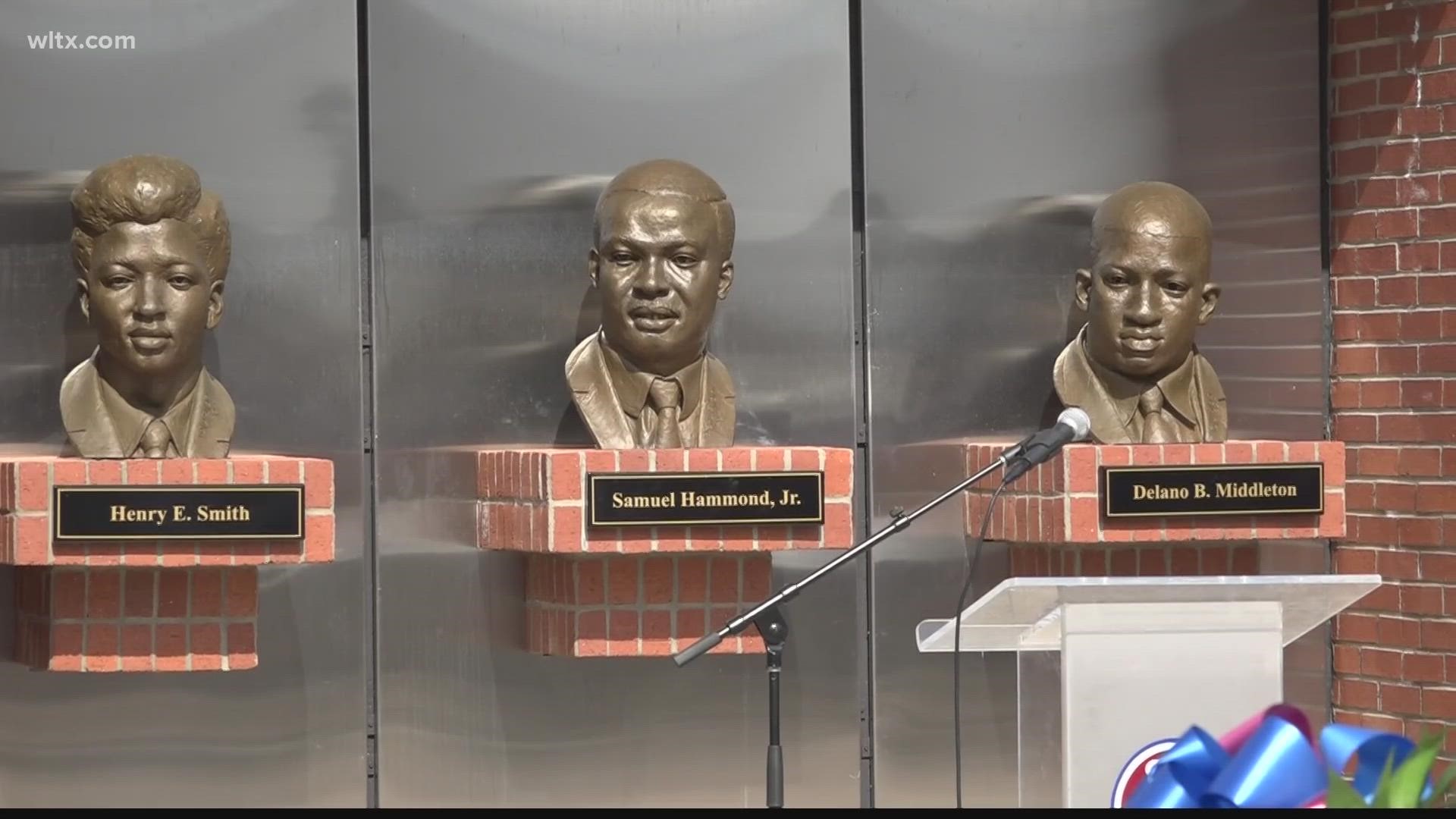ORANGEBURG, S.C. — Wednesday was the 55th anniversary of a deadly civil rights encounter known as the Orangeburg Massacre. A ceremony to remember the lives lost took place at South Carolina State University.
“We have gathered on this campus at this HBCU where this fateful event occurred. We must never forget their sacrifices," said photographer and historian Cecil Williams.
Williams was a speaker at Wednesday's ceremony and captured images of the tragic events that unfolded that day through the lens of his camera. More than five decades after the Orangeburg Massacre shook SC State's campus, the community continues to mourn those who lost their lives and recognize those who survived.
February 8, 1968 is a day the community will never forget. Chaos erupted on the campus of South Carolina State University after a group of black student activists protested the segregated All-Star Bowling Alley.
Highway patrolmen fired into a crowd on campus killing 3 students. These students were Samuel Hammond, Delano Middleton, and Henry Smith. The late Bobby Eaddy was a survivor of the massacre and one of 28 who were wounded.
He is now survived by his wife Patsy and daughter Latisha.
“It was something that he felt was so needless because they were innocent students. They were just expressing their civic right to peacefully protest," said Patsy Eaddy.
His family accepted a social justice award on his behalf in honor of the work he did to continue to preserve the legacy of the Orangeburg Massacre.
“It’s important to remember what happened so that we as a people can try to move forward. We as a nation can acknowledge the senseless killing of young people is not necessary, it’s not acceptable," she said.
The wounds of that fateful day still cut deep for those who remember. Among the survivors is activist Cleveland Sellers.
“Queasy and just sad. Teary-eyed. I tried on last year to give a presentation for this program and it was difficult making it through the first paragraph," said Sellers.
Sellers was a civil rights activist with the Student Nonviolent Coordinating Committee. He advocated for voter registration rights in Mississippi and throughout the South picketing at the FBI headquarters and other government offices.
His activism is what he says he believes made him a target for law enforcement and led to his arrest the night of the massacre. He was jailed for four months at the age of 22. Even today, he says the fight isn't over.
“We need to still have an investigation and we need to discover what the truth was and then we need to provide some kind of retribution to the families of those who were killed," he said.
Now a monument at SC State's memorial plaza recognizes the three students who died and those who survived.

